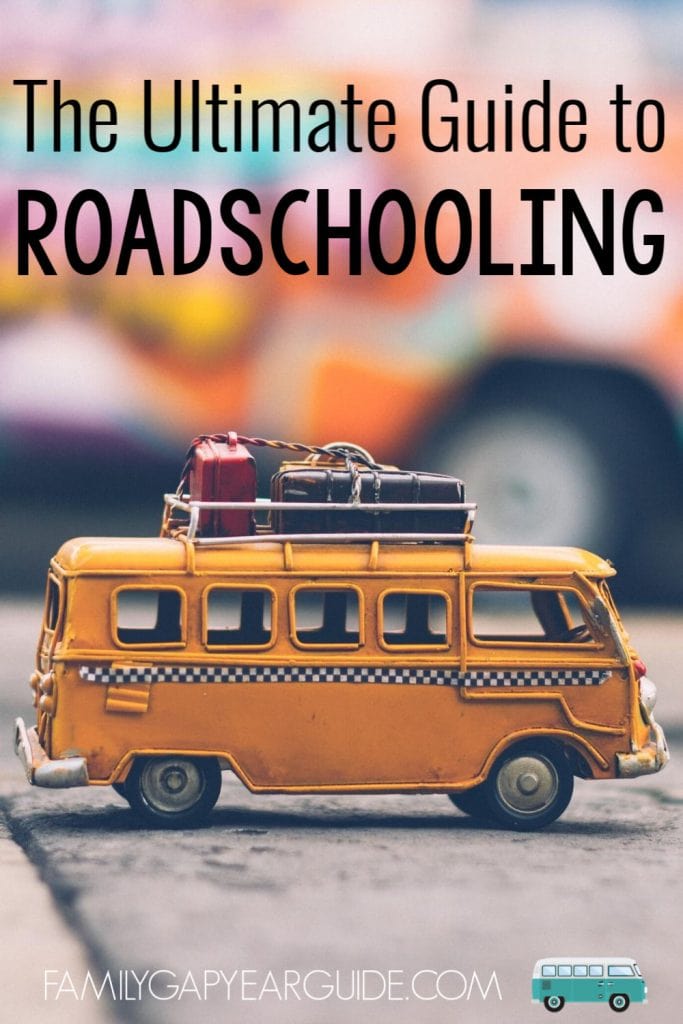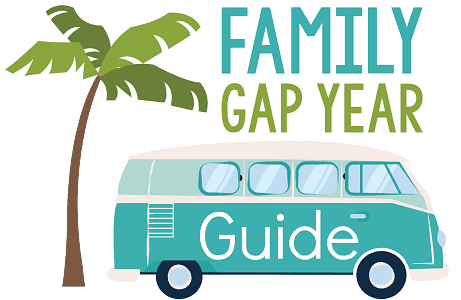Roadschooling: The Ultimate Guide to Teaching Your Kids While Traveling
One of the hardest things I’ve ever had to do was pull my kids out of their charter school, right before my younger son entered Kindergarten. I cried many tears thinking about the tiny chair and cubby my little guy would never use. But we had decided to go in another direction: Roadschooling.

When my husband and I both took on remote jobs, our family found ourselves with a unique opportunity — to take life on the road and live out all of our travel dreams as digital nomads!
Right now, across the world, there are millions of parents who are homeschooling, whether they want to or not! We never expected to be homeschooling, much less roadschooling, but it’s given us the freedom to travel the world with our kids. And I can honestly say we’ve never been happier!
What is roadschooling?
Roadschooling is essentially homeschool while traveling. We combine traditional learning (math practice, reading, writing assignments, etc.) with experiential learning — seeking out the local history, culture, and fun activities of each location we visit. It’s homeschool on the road, with lots of fun bonuses!

Do you want to homeschool or roadschool but are struggling with getting started? Maybe you have friends who homeschool, and you know it’s possible to teach your own children, but you feel overwhelmed. You don’t know what to do first. Google searches turn up millions of hits, but that’s even more overwhelming!
We’ve been traveling and roadschooling for two full school years now, and we’re starting our third! We feel like old pros and are so excited to share with you what we’ve learned!
Don’t miss: How to Take a Family Gap Year
The Ultimate Guide to Roadschooling
Roadschooling Laws
There are no specific roadschooling laws, but roadschoolers are held to the same state-based regulations as homeschoolers. Essentially, you are homeschooling on the road, and there are homeschool laws you’ll need to abide by.
I’m certainly not a lawyer, so while I have some resources to share, please don’t take this as legal advice and make sure to do your own research!
Roadschoolers should comply with whatever homeschool laws are present in your home state. That will likely be wherever you begin your travels or wherever you have official residency.
The Home School Legal Defense Association (HSLDA) website provides all of the homeschool laws by state, and it is such an excellent resource! They have a map that shows at a glance how regulated each state is. Click on any state to get more details. As you can see, some states are more regulated and some are more relaxed.
Your state may have regulations for:
- Withdrawing your kids from school and beginning to homeschool
- Which subjects you teach
- Which tests your kids need to take
- Whether you need to keep and/or submit records of schoolwork completed
- Whether you need to have some kind of teaching qualifications
We lived in Arizona when we got started, so we researched the local laws there. All we needed to do was to fill out an affidavit that stated our intent to homeschool our three school-aged children, get the forms notarized, and file them with our County School Superintendent office.
Arizona also requires the teaching of core subjects: reading, grammar, math, social studies, and science, and they recommend that records are kept.
It was a pretty easy process for us to start roadschooling, and hopefully it will be for you too!

How to Afford Roadschooling
You might be wondering how to afford roadschooling. Does it actually cost anything? Is it cheap, expensive?
Well, if you are going to be roadschooling, then I assume you’ve already figured out how to afford the traveling you’ll be doing. That’s certainly the most expensive part of roadschooling.
My FREE Full-Time Family Travel Starter Pack includes a section on how to budget for a family gap year. Just click that link and fill out the form, and I’ll send it your way!
As far as affording roadschooling itself — it does not have to be expensive at all. I’m going to share many resources in this post that are completely free, and I’ll also share some that are worth purchasing.
Just like with homeschooling, you can purchase a full curriculum off the shelf, you can teach with a combination of paid and free resources, or you can roadschool for free. It’s up to you!
Roadschooling Curriculum
So you’ve followed your state’s homeschooling laws and…now you have to actually teach! So what is the best curriculum for roadschooling?
In the next section I will share more details about the resources and supplies we use to roadschool. But first, let’s talk about what to teach at each grade level.
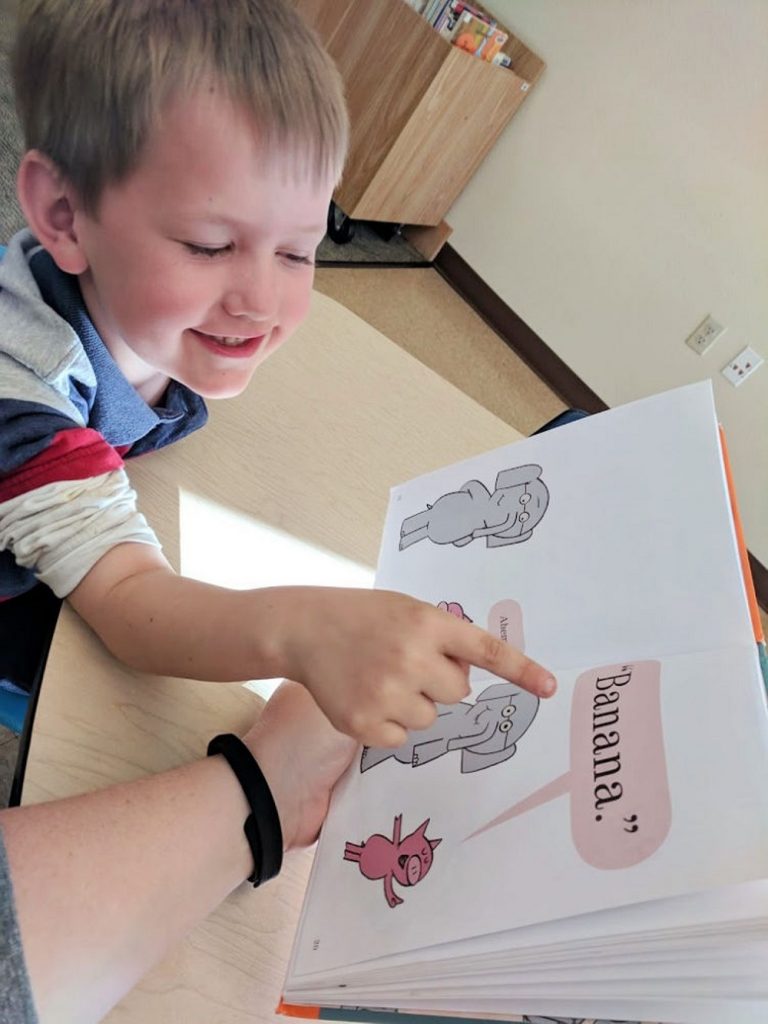
My husband and I both have teaching degrees, but we are not elementary education experts. So I’ve pulled together some resources that will help provide the answers!
This article from Very Well Family, as well as the additional articles linked within, does a great job of breaking down what kids should learn at each elementary grade level.
At greatschools.org, they’ve given a breakdown of all the skills and social developments you can expect in each grade.
Khan Academy, which I’ll talk more about in the next section, offers courses in math and language arts for each elementary grade level. We’ve relied heavily on these to teach our kids those essential subjects.
In addition to making sure you’re teaching the essentials, you can incorporate the locations where you’re traveling!
That’s the important distinction between homeschooling and roadschooling — when you roadschool, you are traveling all over and experiencing new destinations with their own rich history and culture. Use this to your advantage and enjoyment! I’ll talk a little more about this in the roadschooling vs worldschooling section below.

Roadschool Resources & Supplies
Affiliate links are used in this post. If you make a purchase, I will receive a small commission at no extra cost to you. For more information, please see my Disclosure & Privacy Policy.
Like I mentioned, you can buy a complete, off-the-shelf homeschool curriculum. If that’s the route you want to take (#travelpun!) you definitely can. Just keep in mind that most of those homeschool packages come with a lot of supplies, and it could be tricky to travel with them.
There are so many incredible free resources online, so I definitely recommend starting there. Then you can see if there are any areas where you are lacking in resources and consider making purchases.
Here are our top roadschooling resources:
Khan Academy: Excellent for math, language arts, history, high school science, music, and computer programming, among other subjects. Read this post on the best Khan Academy courses!
Google Drive: A great way to keep their work organized. They can create documents, spreadsheets, and presentations right from their own Drive and upload any offline files they’ve created. Our kids keep a daily journal in a Google Doc and use Google Sheets for their school tracker (more about this below).
Duolingo: Duolingo is an easy way to start learning any language. Our family has been learning French in preparation for our trip to France!
YouTube: YouTube is great for homeschooling. It has thousands of educational videos in just about any subject you could want!
Here are some free printable worksheets for a variety of subjects for grades K-5.
Sometimes you can even find textbooks and textbook excerpts online (like this third grade science textbook), so try some searches if you’re looking for something specific.
And get creative! Sometimes we let the kids watch an episode of MythBusters for science or Shark Tank to learn more about business. They always love those days!
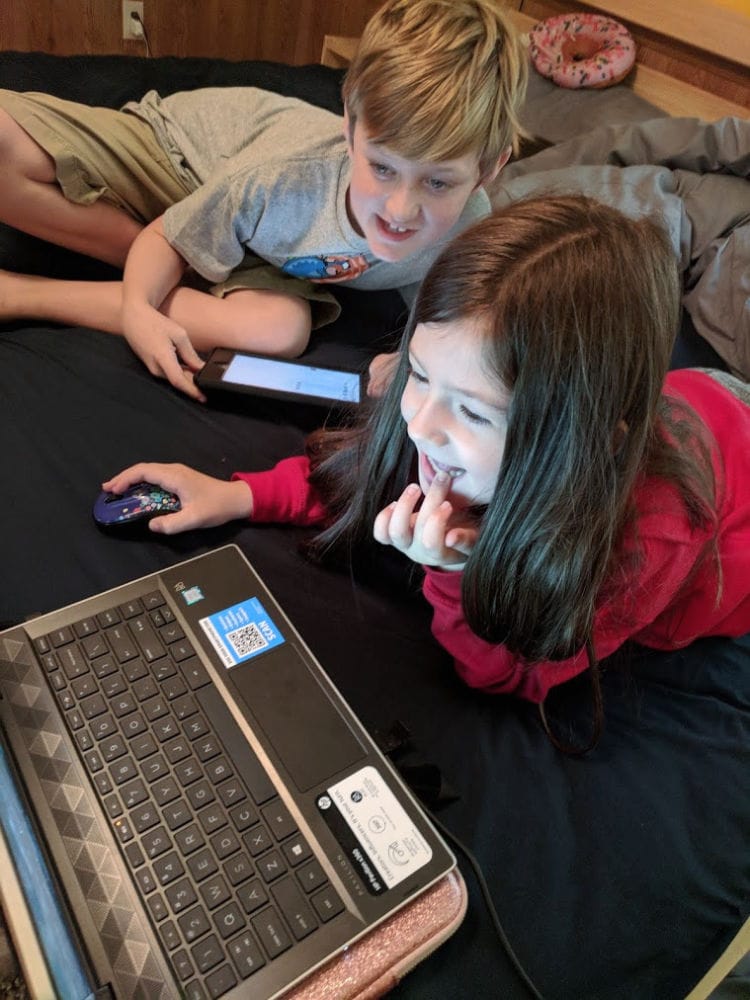
Here are some other online resources that we’ve incorporated into our roadschooling day:
For paid resources, we’ve used Reading Eggs and ABCmouse for our little ones when they were learning to read. We also pay for a Kindle Unlimited subscription. They have lots of books you can borrow while on the program (and keeping things digital is a priority for us).
Now let’s talk about roadschooling supplies!
Obviously we try to keep our hard materials to a minimum because we are traveling and can only take what fits in our van! If you’ll be flying and/or one bagging, you’ll have to reduce even more.
But we do travel with a number of books, workbooks, and art supplies, among other things. Here’s a list of our top roadschooling necessities:
Laptop: Yes, they are expensive, but our kids do so much of their work online. It’s been very beneficial for each of them to have their own computer. Alternately you might get them each a tablet and a bluetooth keyboard. Or you could get one laptop to share and alternate stations (one is online while one is reading and the other is doing a workbook, for example).
Kindle: Kindles allow you to have lots of books on hand while carrying just one small device. You can also get the Kindle app on most tablets and laptops and it works the same way.
Brain Quest: We are big fans of the Brain Quest books. They have sections for each core subject and workbooks for each elementary grade level.
And here are some other supplies that are really good to keep on-hand:
- White drawing paper
- Construction paper
- Notebooks
- Coloring books
- Pencils
- Crayons
- Scissors
- Tape
You can find these and our other favorite roadschooling supplies in our Amazon Roadschooling Resources store!
Roadschool Schedule
How you schedule your time is completely up to you, but we are happy to share what has worked well for us.
Yearly Roadschool Schedule
We don’t take summers off. And we don’t do normal school breaks like winter break, spring break, etc. #meanmom
But, on the flip side, we take off whatever days we feel like!
We practice “slow travel” — staying in places for four weeks at a time — so most weekdays are pretty normal for us. We work, the kids do schoolwork and then play, we have dinner together, and then do our evening routines.
If it’s a weekend, a traveling day, or a day we’ve planned a special activity, we just don’t do school. We never hesitate to take a day off school when there is experiential learning and fun to be had somewhere!
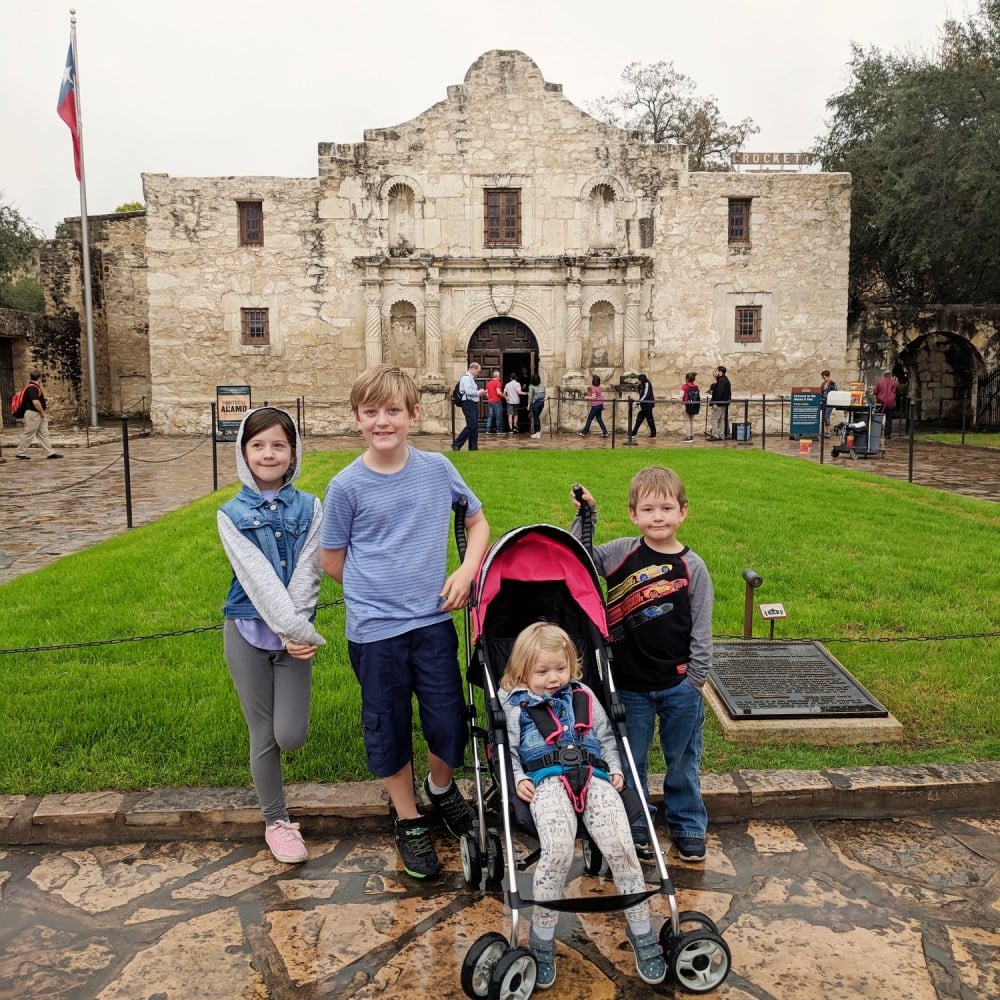
The thing is, if our kids aren’t doing schoolwork and we don’t have a special activity planned, they’ll just want to be on their screens all day. So we still roadschool through the summer, but we change up their daily tasks. We focus on the most essential subjects and add in some fun things, too!
We also don’t focus too hard on grade level — we just keep moving forward. With the 1-on-1 attention you can give your kids while roadschooling, they can get ahead pretty easily and quickly!
So while we make sure that our 3rd grade daughter is meeting all the requirements for 3rd grade, she’s not done for the year when she finishes 3rd grade math. In fact, she’s just barely starting 3rd grade now, and she’s most of the way through 5th grade math in Khan Academy!
If your kids happen to be a little behind or are struggling with a certain area, the 1-on-1 attention will be incredibly valuable. They’ll likely catch up in no time at all! Our boys struggled with poor handwriting, so we made sure they practiced every day, and they’ve improved tenfold!
Daily Roadschool Schedule
Maybe you’d like me to give you a specific schedule, like this:
9-10am: Math
10-11am: Reading
etc.
But we’ve found more success using a task-based schedule, rather than a time-based schedule.
Public schools need to have more of a set-in-stone, time-based schedule, but you don’t! We’ve employed a “to do” list approach that has worked really well.
We call these lists the “School Tracker”. Each kid has their own tracker, customized to their grade and skill level.
The School Tracker has gone through many different iterations, and we still change it up regularly. Essentially, it is the list of tasks that each kid has to complete each day. We keep track of everything in a Google Sheet, and they check off their tasks as they go and record the specifics of what they worked on.
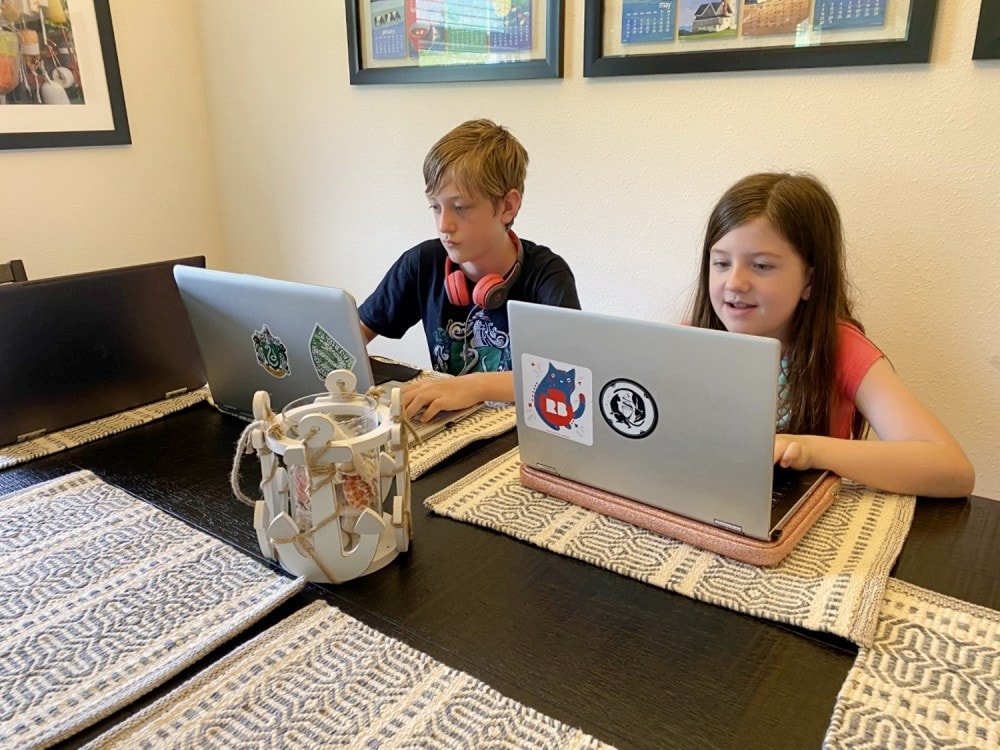
Using this system, we can easily see where they’re at. It’s also helpful to have as a record for the future!
Here’s an example of what their tracker might look like on any given day:
- Journal – Write about what you did yesterday
- Math – Complete the next lesson in Khan Academy
- Times tables practice – 3 rounds, record your results
- History – Complete next lesson in Khan Academy
- Science – Read next chapter in textbook and answer the questions
- Workbook – Complete 4 pages
- French – Complete next lesson in Duolingo
- Reading – Read for 30 minutes
Here are some of the other things we’ve had on the tracker at various times:
- Computer programming
- Typing practice
- Play a game of chess
- Practice handwriting
- Practice tying your shoes
- Read a book to Melody (baby sister)
- Practice your musical instrument
- Music theory
- Watch Mythbusters or Shark Tank
- Memorize famous quotations
- Learn patriotic songs
- Design a video game
- Creative writing
- Business email writing
- Growth mindset course
Using a tracker has become an integral part of how we roadschool. It helps the kids stay on task, knowing what to work on, so they aren’t all coming to us at once asking for their next assignment. It teaches them responsibility and makes our lives easier, all while keeping a solid record of their work!
We have a ton more information on how we roadschool in our Family Gap Year Academy, as well as a free school tracker download. Check it out!
Roadschooling vs Worldschooling
There are a lot of terms out there to describe alternatives to traditional schooling: homeschool, roadschool, worldschool, lifeschool, and unschool, to mention a few!
These different practices are largely defined by their community, rather than anything official. So it’s up to you how you want to describe your own method of schooling.
Many travelers choose to “worldschool”, which I believe focuses heavily on real-world experiences and being immersed in a variety of cultures while traveling, with a lesser focus on traditional learning.
I use the term “roadschool” to define what we do, because we are essentially homeschooling on the road. We put a strong focus on the traditional subjects and completing lessons and assignments, but also incorporate our travels and the local culture as enrichment opportunities. We’ve found a balance that works well for us, and we feel our kids are excelling academically while having a huge variety of real-life experiences they couldn’t have had by living in one place.

Here are just a few things that we’ve done with our kids over the past two years:
- Visited the Whale Museum and watched for whales in the San Juan Islands
- Went clam digging and blackberry picking at the beach in Washington, and then cooked clams and made blackberry jam
- Visited the End of the Oregon Trail museum in Oregon
- Learned about space at Griffith Observatory in LA
- Learned about the Battle of the Alamo at the Alamo
- Watched a sea turtle being released into the ocean on South Padre Island, Texas
- Learned how to build sandcastles from a pro on South Padre Island
- Visited the Kennedy Space Center in Florida
- Visited the Musician’s Hall of Fame in Nashville
- Hiked part of the Appalachian Trail in West Virginia
- Toured all three branches of government in Washington D.C.
- Learned how to read the subway map in New York City
- Watched Louisville Slugger bats being made at the factory in Louisville
While we consider traditional schooling to be important, we never hesitate to take a day off from “regular” school to have a real-world experience. These are the things the kids will remember for years and years!
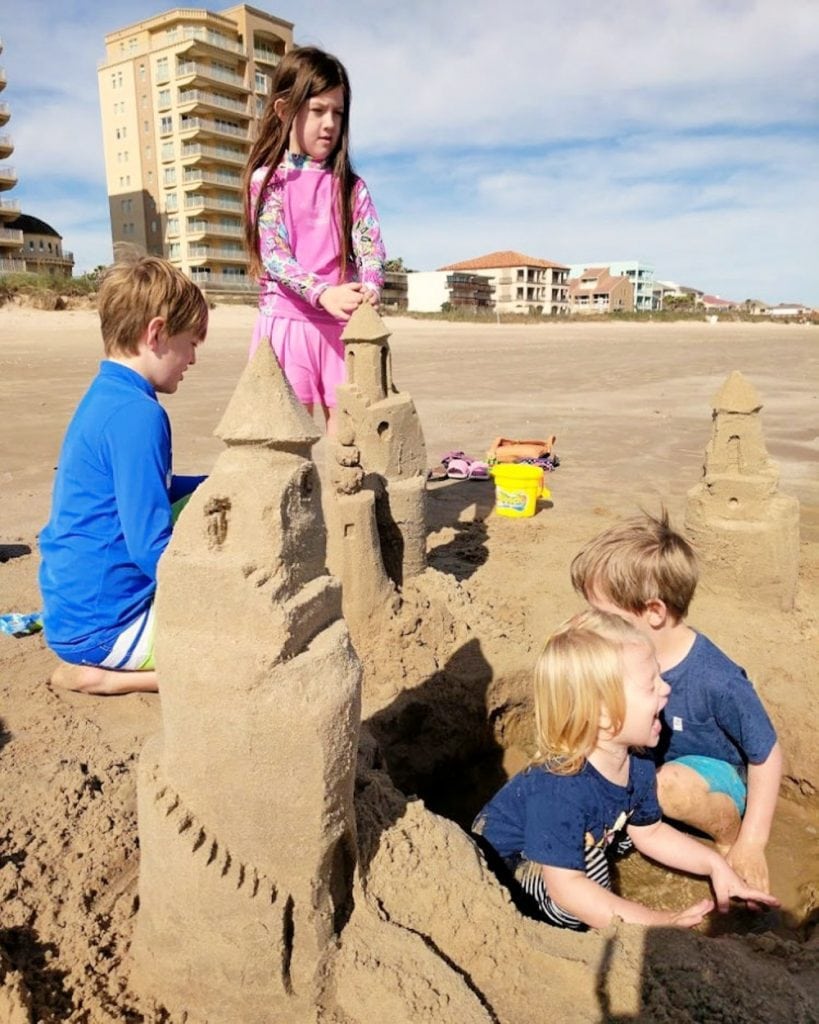
Tips for Successful Roadschooling
I hope I’ve given you some solid information to help you get started! Before I set you loose, here are a few more tips that we’ve picked up in our roadschooling adventures:
Do what works for you
One of the great things about roadschooling is that you don’t have to worry about a classroom full of 30 different kids. You only have to worry about your own. You can focus on their unique learning styles, areas of difficulty, and where they can be challenged to excel beyond their grade level.

The same goes for you! Experiment with different approaches and routines and figure out what works for you and your kids. Leave the one-size-fits-all approach for the traditional classroom and have fun!
Change it up
Going along with doing what works for you, don’t be afraid to make changes!
Using the same routines, day in and day out, results in bored students. We have days where we do a dozen subjects for a short time each, days where we intensely focus on one thing for hours, and lazy days where we do almost nothing!
The more experience you get, the more you’ll be able to see what works. You’ll find your perfect system in no time, and then you can break your own rules, too!

Have the kids teach one another
One of the disadvantages of roadschooling is that your kids are probably all at different educational levels. You can turn this liability into an asset by having them help one another!
Nothing helps you solidify a concept in your mind more than teaching it to someone else. Your children are teaching, learning, and taking some of the load off you, all at the same time. It’s a win-win-win!

Use your location to your advantage
As a roadschooler, don’t forget to “road school”! Look for opportunities to get out and explore your location and learn by doing.
What historical markers or important locations are nearby that you could learn about? Are there any cultural festivals or activities going on? Any unique local foods or activities? Opportunities to volunteer?
Check out the local library — they usually offer a variety of free programs and activities for kids! Science and art museums usually have programs for homeschooling families, too.

Yes, you can roadschool!
If your ultimate dream is to travel full-time with your family, don’t let roadschooling be the thing that holds you back. It can be incredibly rewarding and fun!
Whether you take this on as your new lifestyle, or just decide to travel and roadschool for a short period of time, you and your kids will always remember the amazing adventures you had!
And if you can remember all the way back to the beginning of this article, where I shared my sadness at my younger son missing out on Kindergarten…

Well, somehow we managed. 😉
For even more roadschooling tips, information, and downloadable resources, check out our Family Gap Year Academy! We cover more about educational standards, how to teach life skills and extracurriculars while roadschooling, provide you with a school tracker download, and lots more! Hope to see you in there!
The very best of luck on your roadschooling journey. You’re going to do great!
Pin it if you love it!
